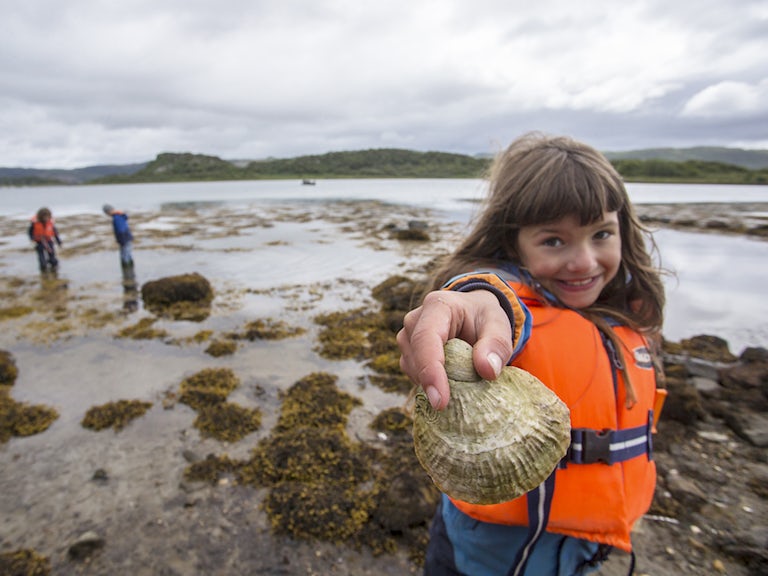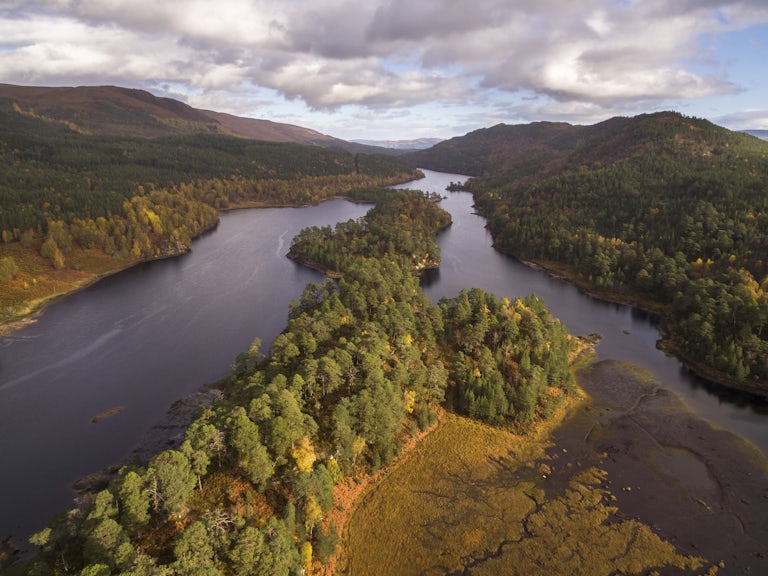Reconnecting with nature
Our disconnection with nature has caused untold damage to the planet and ourselves. Through rewilding we can re-establish our rightful place and thrive along with wildlife.

For nigh on 200,000 years, Homo sapiens have existed as nomadic hunter-gatherers, a time period that equates to over 99% of human history. These people were deeply aware of and connected to their environments, relying directly upon them and living fully immersed within them. It is only since the onset of the agricultural age 10,000 years ago that we began cultivating and domesticating wild nature, and with revolutionary consequences.
In a handful of generations, everything dramatically changed. Society became increasingly industrialised and urbanised, with most of us deeply disconnected from the natural world we evolved in. Today, our entire socio-economic system is designed from a dominant worldview of ecological disconnection. It’s an outlook that we are somehow different and separate from nature, but also in control of it. We have come to believe that the natural world exists only to serve human needs.
This affects our lives in many complex ways, including our lifestyle, health, behaviour and relationships, from spheres of society to our resource use, buildings and urban design, and our economic, education and health systems.
What do we mean exactly by ‘connection to nature’? It’s the extent to which people see themselves as part of nature, an emotional affinity towards the natural world and a subjective sense of connection with it. There’s also a certain level of awareness required to feel connected. If we are only vaguely aware of or even oblivious to the birdsong, the scurrying squirrels and the gentle breeze as we take a walk outdoors, perhaps it’s because we are preoccupied and unaccustomed to paying full attention to our surroundings. There’s clearly a limit then to how connected we can feel to them.
90%
of people’s time is spent indoors (in modern industrial societies)
Losing our natural cycles
Most of the human population, currently 77% but rapidly increasing, now lives in urban areas. They don’t rely on the immediate ecosystem around them but on complex and industrialised processes to provide for their daily needs. People in modern industrial societies spend 90% of their time indoors in artificial, temperature-controlled environments. Their lives are devoid of natural cycles, birdsong, bubbling streams and the freshest air. Even people living in rural areas are not immune to the disconnecting effects of increasingly technology-mediated, busy modern life.
There is a wealth of research that illustrates how disconnection from nature is linked to mental and physical illness, from anxiety, depression and poor body image in women, to heart disease, fatigue and lowered life expectancy to name but a few. Nature-deficit disorder is a recognised condition in children, which has been identified as a contributor to obesity, depression, ADHD, behavioural problems and lowered cognitive ability.
“There is a wealth of research that illustrates how disconnection from nature is linked to mental and physical illness”
Communities that are disconnected from nature show higher levels of conflict, violence, crime and racial tension. On a societal level, a culture of disconnection feeds an alienated consumer culture and the continued over-exploitation of nature required to fuel it. Not only that, this disconnect has been shown to be a major barrier to transitioning away from this way of life to a just and sustainable future. People who are less connected to nature are less likely to take positive action, whether they are an average citizen making lifestyle choices or a top politician making policies.
How do we reconnect?
It’s clear that an important part of reversing the trend of accelerating ecological disaster we are heading towards is reconnecting with nature. Where do we start? How do we reconnect?
Getting outdoors into nature is an obvious starting point, and this will have immediate positive well-being and health effects. However, research shows that in order to really connect, we need intentional rather than passive interactions. We connect with our senses, emotions, intuition, imagination, spirituality, and creativity. And we need to intentionally engage with the natural world using these faculties rather than simply being outside or taking a walk. This may require a different way of being than we are perhaps accustomed to in our busy daily lives.
Not everyone has easy access to nature though, so part of this work is about creating more equity in opportunities for connection. Access to nature can be affected by economic status, ethnic background, geographical location and how we design the world around us both physically and socially. Providing opportunities for those with the least access, and rewilding residential and urban spaces to include nature rather than exclude it will support this.
Biophilic cities such as Singapore, which are welcoming nature back into urban spaces, offer much inspiration here. Research demonstrates that more green space, natural features and natural design lead to a deeper sense of connection to nature and all of the associated benefits. These benefits include the reverse of all of the ills experienced from disconnection: improved mental and physical health, more cohesive and peaceful communities and a more sustainable society.
In rural areas this could include increasing nature-friendly farming practices, and rewilding areas of land where it’s appropriate and has the support of local communities. If there is more wildlife and wildness around, then our experiences in nature will be richer and more meaningful. Just picture the difference between walking through an industrially-farmed green desert compared with a wildlife-rich landscape with sightings of eagles and beavers.
“If there is more wildlife and wildness around, then our experiences in nature will only be richer and more meaningful”


We’re boosting rewilding on the ground
Several projects have been awarded to help bring people closer to nature in the latest round of the Rewilding Innovation Fund, including an urban rewilding project and two local rewilding groups.
Uncover the full list of recipients awarded since 2021 to see the diverse range of rewilding projects taking action across Britain’s land and sea.
On a societal level, supportive policies, legislation and financial support can help to make all of this possible. By including nature in our systems both the human and nonhuman worlds benefit. Imagine a health system that took the healing power of nature to heart, with green oases as health centres; an education system that recognised how crucial children’s connection with nature is to their development and learning; and an economic system that took natural cycles and ecological limits into account.
For most of us though, it will simply start with birdsong, squirrels and gentle breezes, and a more mindful approach to experiencing them.

Explore our Rewilding Manifesto
We need UK Government to Think Big and Act Wild for nature, people and planet.
Learn more
Our vision
We have big ambitions. Find out what we’ve set out to achieve through rewilding.
Our 2025-2030 strategy



